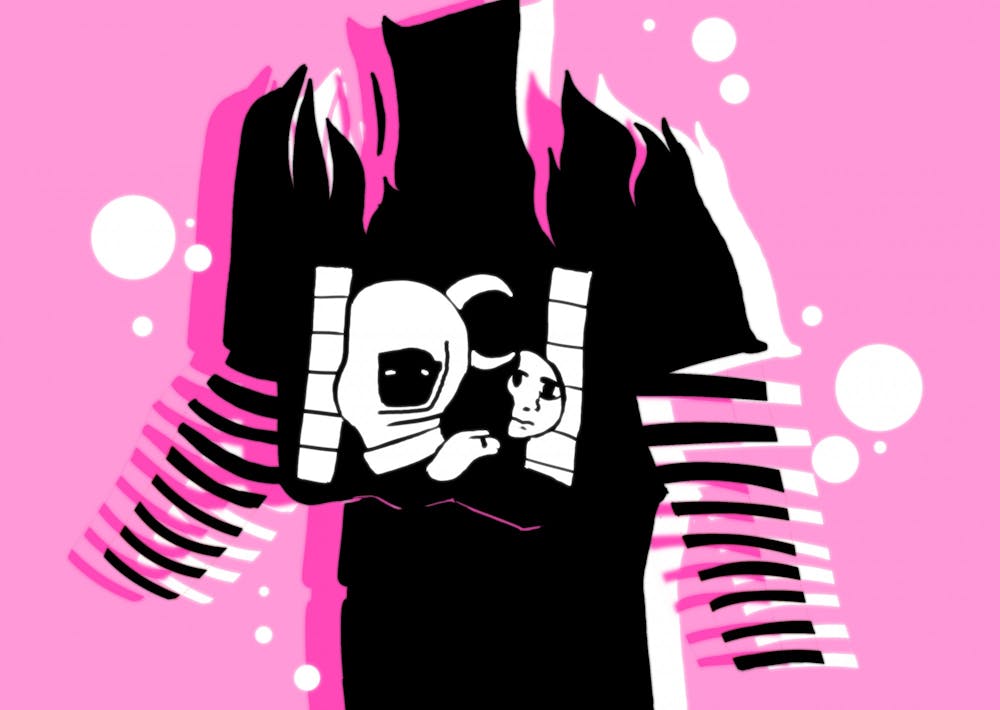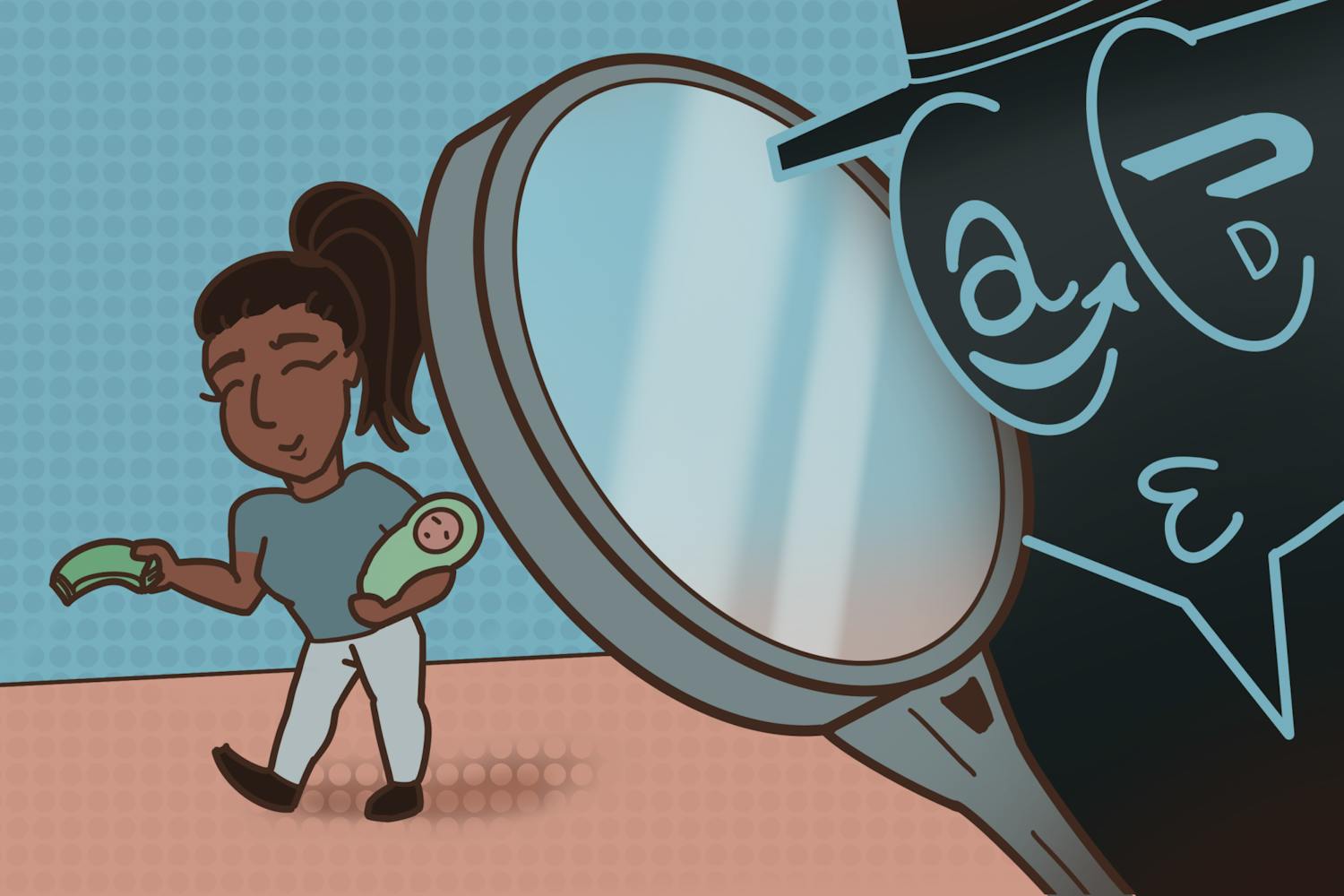The band 100 Gecs, which comprises the duo of Laura Les and Dylan Brady, went viral in early 2020 with several singles from their debut record, “1000 Gecs” — a dizzying, electric collection of songs which all seem intended to be played at full volume on a massive sound system.
Chaotic, expressive and undeniably loud, “1000 Gecs” might be better described as an experience than an album. But 100 Gecs was just the suddenly mainstream surface of a thriving underground movement in pop music.
Artists like SOPHIE, Charli XCX, Rina Sawayama and Grimes had been busy innovating a new and unique pop music sound for years. Eventually, often through collaboration with PC Music, a record label founded by experimental musician A.G. Cook, this music would converge into the trend today referred to many as “hyperpop.”
It’s hard to define what exactly hyperpop is as a genre. One collaborative wiki website claims that hyperpop “combines both EDM and traditional pop,” and “the genre puts an extreme emphasis on cuteness, femininity and intoxication,” through “extreme pitching and warping of both the bass and rhythm, as well as upbeat, bubbly synths.”
Garrison Jones, who teaches pop music ensembles in the University’s popular music program, also finds the sound difficult to pin down.
“You can see the hip-hop influence, you can see the electronic influence,” he said. “Now it’s like, everything is fair game. It’s understandable that music would go in this direction and break off into all these sub-genres.”
The music usually defined as hyperpop is certainly chaotic and erratic, and its bizarre surge in popularity may be reflective of the chaos of the present moment. In the midst of a pandemic and international political uprisings, it may make sense that new music trends are increasingly subversive and provocative.
Jones said he agrees music is often reflective of the times and cultural moment, drawing comparisons to hip-hop and R&B’s history in the context of the Black American experience.
“(Music) has always been a reflection of racism and classism, and there's always been a movement alongside that,” he said.
Another key characteristic of hyperpop is its connection to the internet. The band 100 Gecs is certainly not played on the mainstream radio, but the band has millions of fans across streaming platforms and millions of views on YouTube.
Apps like TikTok enable users to exert far more control over the music charts than ever before by encouraging repetition of a single song or “sound” with an associated viral dance or comedic punchline. It’s likely that most hyperpop music is considered too abrasive and niche for popular consumption, but that doesn’t stop Gen-Z from spreading the music like wildfire in the digital world.
Jones thinks hyperpop’s relationship to virality and the chaos of the COVID-19 era makes perfect sense.
“It's totally internet culture inserted into pop music,” he said. “I think definitely with coronavirus and people staying home people are just putting out tons and tons of content and you're looking for that shock value to send you to the top of whatever that social media platform is.”
Others on the internet have pointed to the genre’s distinct queerness as a potential factor in its popularity. Its surrealism and artificiality serve as an ideal space for transgender and non-binary artists to express themselves outside of heteronormative and cisnormative gender conventions. In the world of hyperpop, the artist’s image and sound are completely unconstrained, easing the burden of dysmorphia for queer artists.
Regardless of its contested technical definition, hyperpop music is certainly growing in popularity. Whether it’s just a passing trend in electronic music or an exciting transitional moment in the future of pop, only time will tell.
Reach the reporter at lexmoulton@gmail.com and follow @lexmoul on Twitter.
Like The State Press on Facebook and follow @statepress on Twitter.




